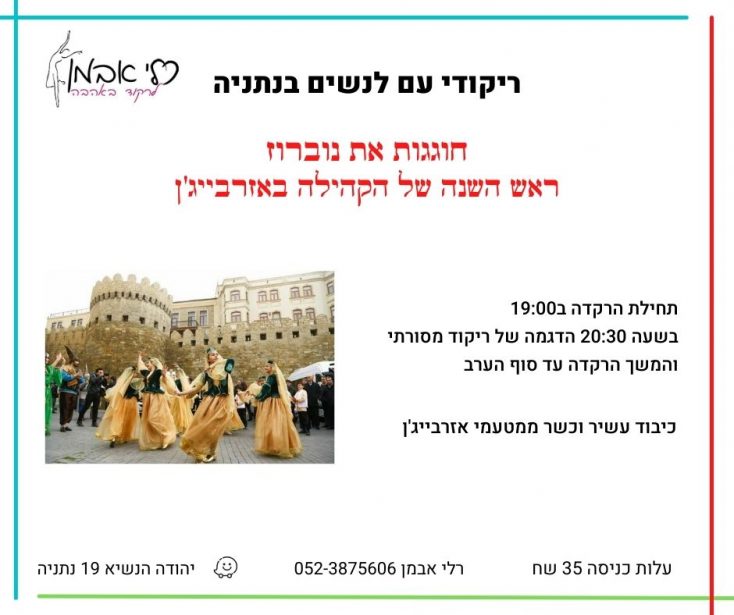As we speak, Azerbaijanis around the world are celebrating Novruz, which is the Azerbaijani New Year. On this day, Azerbaijanis celebrate the end of winter and the beginning of spring. The holiday also celebrates values such as peace and global solidarity, as well as reconciliation and good neighborliness.
Originally a Zoroastrian holiday, Novruz was born in the Urmiya region of Iranian Azerbaijan, with roots that date back to 505 BCE. The prophet Zoroaster was also born in Urmiya, so Azerbaijan is the homeland of the Zoroastrian faith. Today, Novruz is celebrated not only in Azerbaijan, but also in Iran, Afghanistan, India, Iraq, Kyrgyzstan, Kazakhstan, Pakistan, and many other nations along the Ancient Silk Road.
Novruz, which translates into English as “New Day,” has been cited in many legends and poems. In the Zoroastrian faith, the holiday symbolizes how Asha, the eternal source of light and truth, defeated the forces of darkness. Many Azerbaijanis have also written many poems about Novruz. The founder of the Azerbaijani Safavid state Ismail Khatai wrote the following poem about Novruz: “Winter left. Spring came again. Flowers grew. Tulip gardens came. All birds started to chirp. The fire of love is burning in the soul again.”
Just as Jews start cleaning their homes for Passover since Tu B’Shevat, the Festival of Trees, Azerbaijanis start also cleaning their homes for Novruz one month before the holiday actually begins. They also plant trees, paint eggs and prepare special clothes for the holiday. Each of the four Tuesdays before Novruz is devoted to a different element: “Water, Fire, Earth and Wind.”
On the four Tuesdays leading up to Novruz, fires are lit. On the last Tuesday before Novruz, one must jump over the fire seven times as an act of purification. The ashes of the fire are transplanted far away from the home to ensure that bad luck will stay away for the next year. It is also traditional to jump over overflowing water to wash away the past year’s sins.
On the day before Novruz, Azerbaijanis usually visit the graves of their loved ones and tend to them before having a traditional meal. On the day of Novruz, there is much feasting, relatives visit one another and children play with painted eggs. There is also much singing, dancing, games and performances. At the meal itself, there is a special Novruz plate with seven varieties of food that begin with the letter S, just as there is a variety of items on a Seder plate. It is also traditional to light candles for Novruz, just as one lights holiday candles in Judaism.
In honor of the Azerbaijani-Israeli relationship, the Economic Peace Center together with the women’s only Israeli dance group of Rali Abman is hosting a “Women’s Novruz Party” at Bet Israel Congregation in Netanya, Israel at 19 Yehuda Ha-Nasi Street on March 27 at 8:30pm. At this celebration, Rachel Avraham, the editor of the Economic Peace Center, will explain what is Novruz, Ziva Amarov will wear traditional Azerbaijani dress and teach a couple of Azerbaijani dances to the group and traditional Azerbaijani Novruz food will be served with beer and wine, alongside other refreshments. Ladies are welcome to attend.






